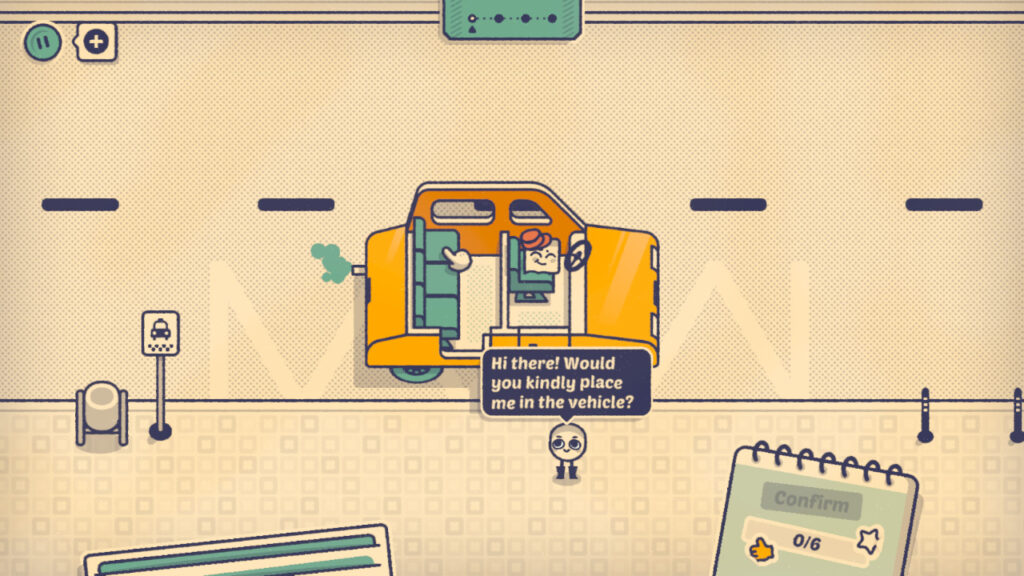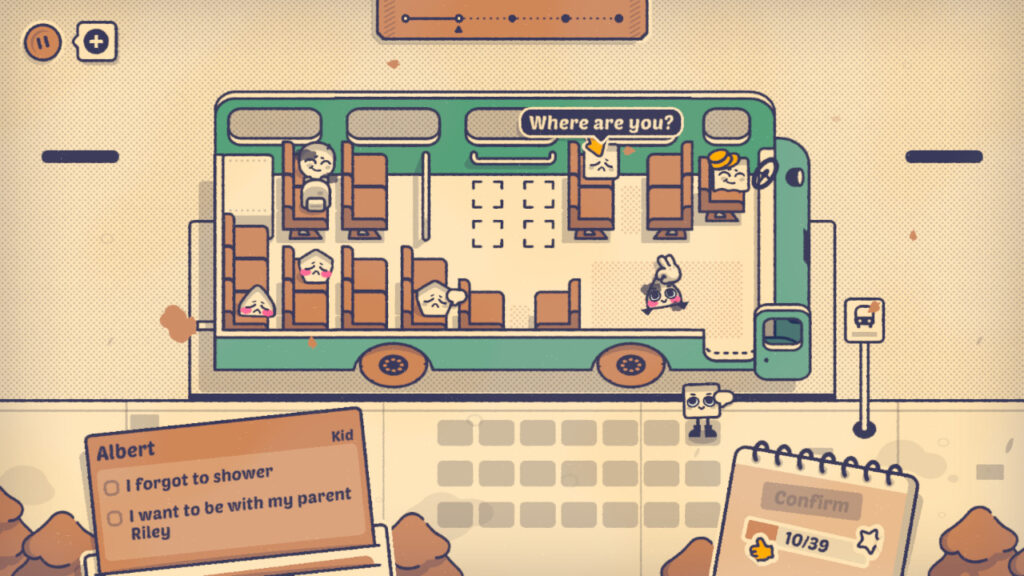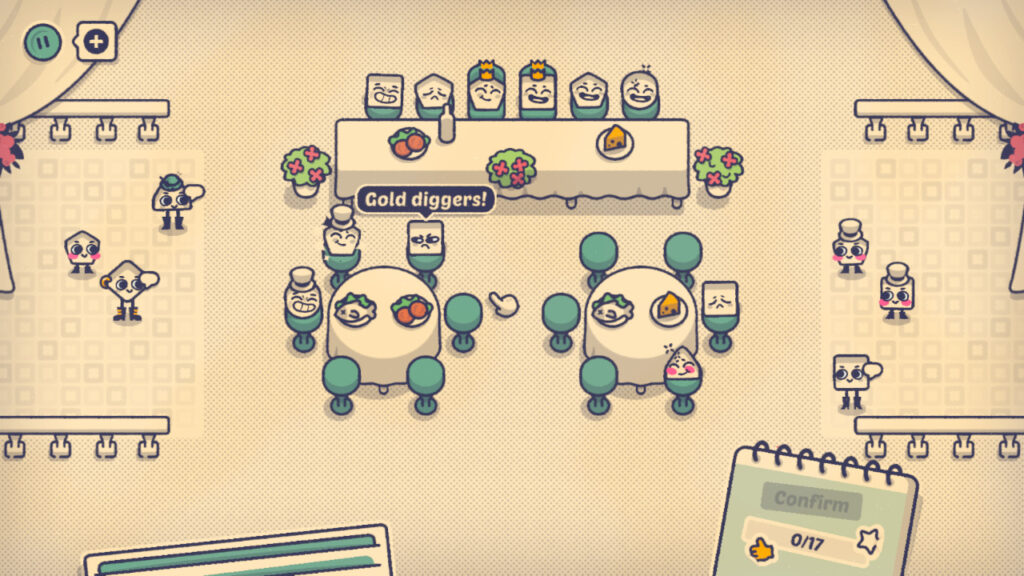I love it when Indie developers take a concept that sounds simple, but turn it into a story about self-discovery, brain-cracking puzzles, and just overall good vibes. Is This Seat Taken? was one of those games that caught my interest from the moment it was announced. The artistry, the aesthetics, everything screamed, ‘Yes, please.’ Shall we dive in and do some rearranging?
What seats?
Is This Seat Taken? is a cozy, logic-puzzle game by indie developer Poti Poti Studio, published by Wholesome Games, released on August 7, 2025, for PC, mobile (iOS/Android), and Nintendo Switch (1 and 2). It takes everyday anxieties—such as setting a bus seat or choosing a movie spot—and turns them into gentle, charming challenges. With pastel visuals, elevator-jazz tones, and a cast of quirky, shape-based characters, it’s a brief but delightful adventure that’s as relaxing as it is satisfying. And it was just what I needed to be honest.
Story: the journey of Nat
At the heart of the game is Nat, a rhombus who dreams of becoming an actor, but feels out of place among the more conventional shapes. Motivated by seeing a shape like them on the big screen, Nat embarks on a lighthearted odyssey across cities—from London to Barcelona, Brussels, and beyond—finding confidence and self-acceptance along the way. The story is intentionally understated, but it enriches the puzzle formula with a sense of genuine warmth and self-discovery. It never overstays its welcome, yet subtly explores themes of identity and belonging.
Gameplay mechanics: puzzling with pizzazz
Gameplay in Is This Seat Taken? Feels like arranging seating charts for delightfully picky friends. Each character—or “shape”—has specific conditions: wants to sit by a window, avoid someone smelly, stay near family members, and so forth. These constraints play out across various scenarios—taxis, cinemas, wedding receptions, buses, and boats—each adding fresh demands or quirky twists, with recurring characters throughout the levels.
The game is forgiving—no timers, no harsh penalties. You can leave someone unhappy and still move on, though perfect satisfaction unlocks more content. The drag-and-drop interface is intuitive and tactile; visuals and audio reinforce the cozy vibe. Levels are bite-sized and ideal for quick sessions—perfect for portable play.
That said, repetition does creep in. Without hints or easy reset options, trial-and-error becomes the default—and replaying levels without a quick restart can be a chore. Some of my co-reviewers noted a lack of mid-level saves, which slightly undermines the “dip-in-dip-out” rhythm. Still, for its short runtime (~5–6 hours), it remains engaging, and I wanted to find out WHAT happened with Nat at the end of his journey.
Indie Games still matter: Why “Is This Seat Taken?” resonates
In a landscape dominated by sprawling blockbusters, Is This Seat Taken? Reminds us why indie games matter. They distill everyday experiences—like the low-grade tension of choosing a seat—and turn them into something playful and profound. Its minimalistic visual flair, tight design, and small-team creation (just two developers) show how charm and creativity can outweigh budget.
Moreover, it embraces accessibility and calm. No countdowns, no harsh penalties—just room for creativity, experimentation, and gentle humor aftermath. Thematically, it explores inclusivity and the feeling of being an outsider, all without resorting to heavy-handed storytelling. In that, it typifies why indies continue to drive innovation and empathy in gaming. And it hit close to home as well, since I could relate a lot to the characters found in Is This Seat Taken, spending countless hours on the trains and buses of this world.
Conclusion
Is This Seat Taken? is a delightfully quirky little puzzle game that blends charm, logic, and cozy storytelling into an unforgettable indie experience. It isn’t revolutionary—but it doesn’t need to be. For about six hours, you’ll guide Nat on a journey across cities, arranging eccentric characters in their perfect spots, solving everyday social puzzles made whimsical. Its warmth, simplicity, and peaceful pacing are its greatest strengths—though a restart button and more variety would have lifted it even further.
In the end, it’s a subtle reminder that the most memorable games often come from small teams with big hearts. And that finding the right seat—both in a puzzle and in life—can be precisely the kind of joy we need. And for the love of shapes, 100% this game – the bonus levels are simply outstanding.





